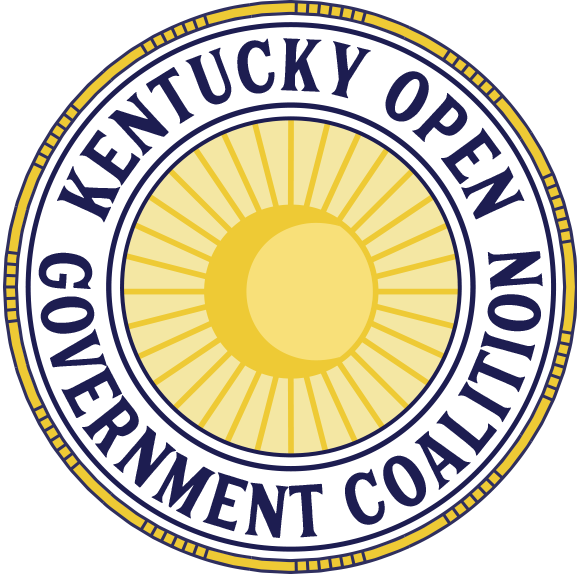
UofL’s new President, Gerry Bradley, carries a heavy burden as the most recent in a series of transient office holders at a university that “has struggled to keep a permanent president since James Ramsey resigned in 2016.”
https://www.whas11.com/article/news/education/university-of-louisville-…
Bradley bears the weight of public opinion following a secretive appointment process, conducted behind closed doors, about which no university official is willing to speak. His appointment has engendered mistrust with students and faculty — and it shows no immediate signs of subsiding.
https://www.courier-journal.com/story/opinion/columnists/2025/04/07/uni…
https://www.courier-journal.com/story/opinion/columnists/gerth/2025/04/…
University “presidencies birthed in secrecy frequently crash and burn. When you live by secrecy, you die by secrecy,” wrote Frank LoMonte — a widely respected First Amendment lawyer, CNN Senior Counsel, and adjunct professor at the University of Georgia School of Law — in 2019.
https://www.baltimoresun.com/2019/01/10/umd-owes-public-transparent-pre…
Certainly, that was the case for Kim Schatzel. But what does it bode for her successor?
Because his appointment was the culmination of a “sneaky backroom deal,” Bradley’s greatest challenge may lie in disengaging himself from the notion “that sneaky backroom deals are a proven successful way to do business.”
https://www.baltimoresun.com/2019/01/10/umd-owes-public-transparent-pre…
LoMonte’s observations are instructive:
“America is littered with failed college presidencies and damaged higher-education institutions all tracing back to a single cause: An obsession with projecting a favorable image that overrides everything else. We are learning the terrible costs when the people who run public universities lose sight of their priorities. Colleges are fixated on ‘protecting the brand.’”
LoMonte suggests that curing the “secrecy addition” in higher education “starts with reforming the unjustly secretive hiring process in which most universities choose their presidents. Not long ago, it would be unthinkable for a public university — one of the most powerful agencies of state government — to select a president without bringing several finalists to campus and debating their merits in the open.”
LoMonte is no fan of private “head hunting” executive search firms that “thrive on secrecy. Their greatest asset,” he noted in 2019, “is their stockpile of candidates. If those candidates get scratches and dents when they fare poorly under public scrutiny, that’s bad for business.”
In turn, head hunting firms convince “trustees that the right amount of public input is ‘zero.’ It’s now commonplace for the public to learn nothing about the selection process except the winner’s name, so there’s no telling whether a diverse field of qualified people received consideration or whether the best one prevailed.”
What accounts for these often bad outcomes? LoMonte identifies these root causes.
• Candidates who haven’t been thoroughly vetted turn out to have buried scandals. Search firms “engineer the entire selection process around making sure word never gets back to the applicant’s current campus. And that means nobody on the soon-to-be president’s home campus is asked if that person is a harasser or an embezzler, or can be trusted with the safety of 30,000 students.” Facts that should have been publicly deliberated during the hiring may not be disclosed until it is too late.
Given Bradley’s long history at UofL, Louisville should at least be spared this embarrassment.
• Candidates who haven’t visited the campus and interacted with the community may be a “personality mismatch.”
This problem has been suggested more than once in Schatzel’s case.Bradley, on the other hand, presumably already speaks the university’s language.
• “Third,” LoMonte writes, “people hired in sneaky backroom deals, unsurprisingly, think that sneaky backroom deals are a proven successful way to do business.”
The secretive circumstances of Bradley’s appointment may incline him to accept “sneaky backroom deals” as standard operating procedure and the formula for success. Is Bradley already so throughly emeshed in the existing culture of secrecy at UofL, that he is unable, or worse still, unwilling to try to change it for the better?
“You literally wouldn’t hire a person to mow your lawn if they told you, ‘Don’t talk to anyone whose lawn I’ve mowed over the past seven years.’ Shouldn’t we be at least as careful in hiring the CEO of a public agency with a [$1.72 billion] yearly budget?” LoMonte asks.
Absent “a transparent, inclusive search that produces a president who’ll take office with the community’s confidence,” university hiring of “a total stranger is the higher-ed equivalent of marrying a mail-order bride: It might produce a long and happy relationship, but the odds are greatly against it.”
UofL’s new “bride” is no stranger, but a happy relationship is still no guarantee. Gerry Bradley will have to work hard to surmount the mistrust produced by his secret, closed door appointment.
